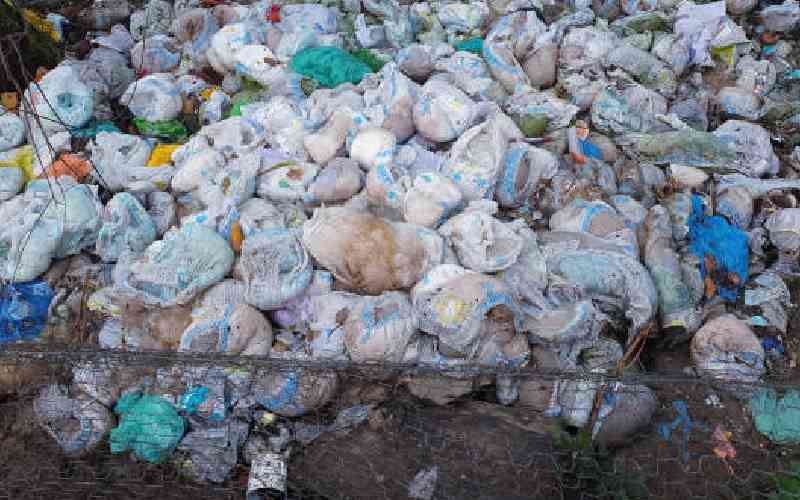×
The Standard e-Paper
Kenya’s Boldest Voice

Garbage disposal is one of the greatest challenges in Kenya's urban areas. With the constant increase in waste production and few dumping sites, disposable baby diapers are adding to this menace and their contribution to the garbage crisis is going unrecognised.
Marcela Ambani, a 40-year-old mother of six from Kayole says using disposable diapers has been a relief to her.